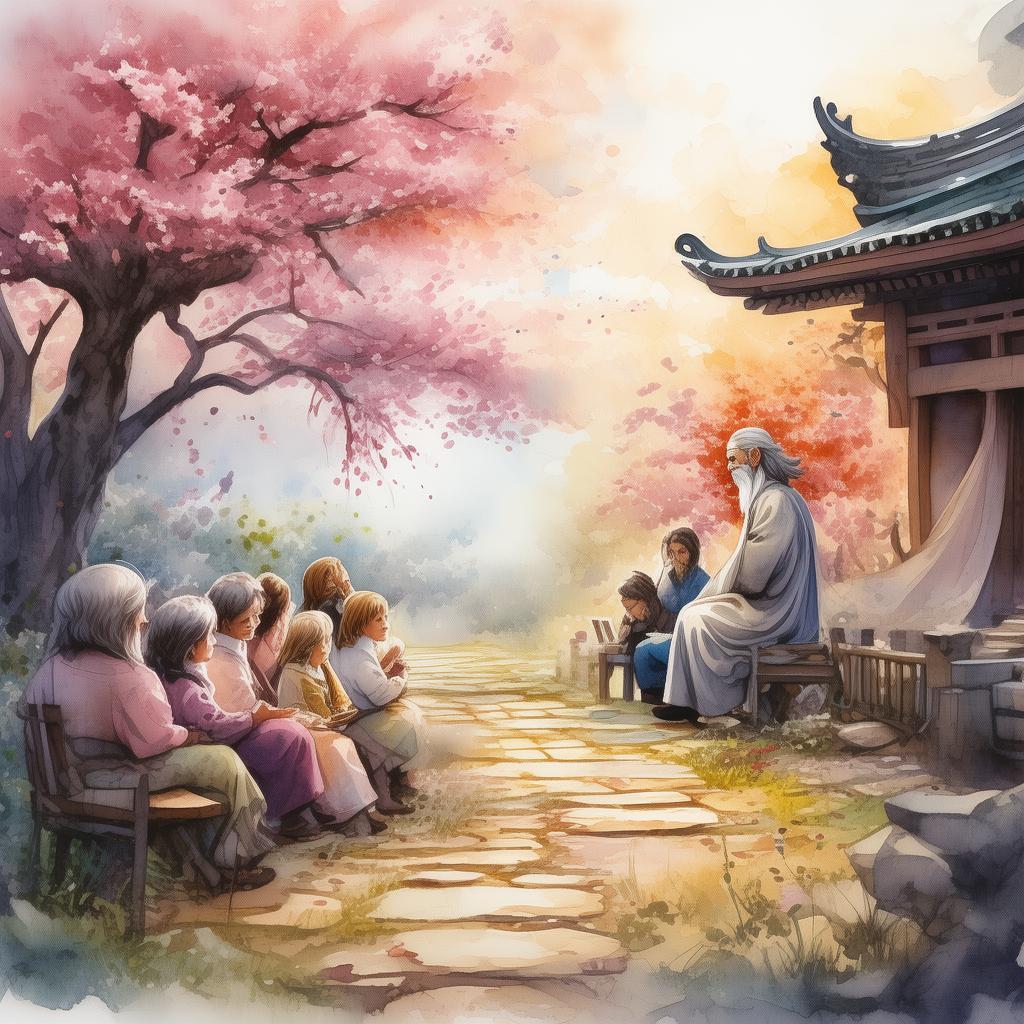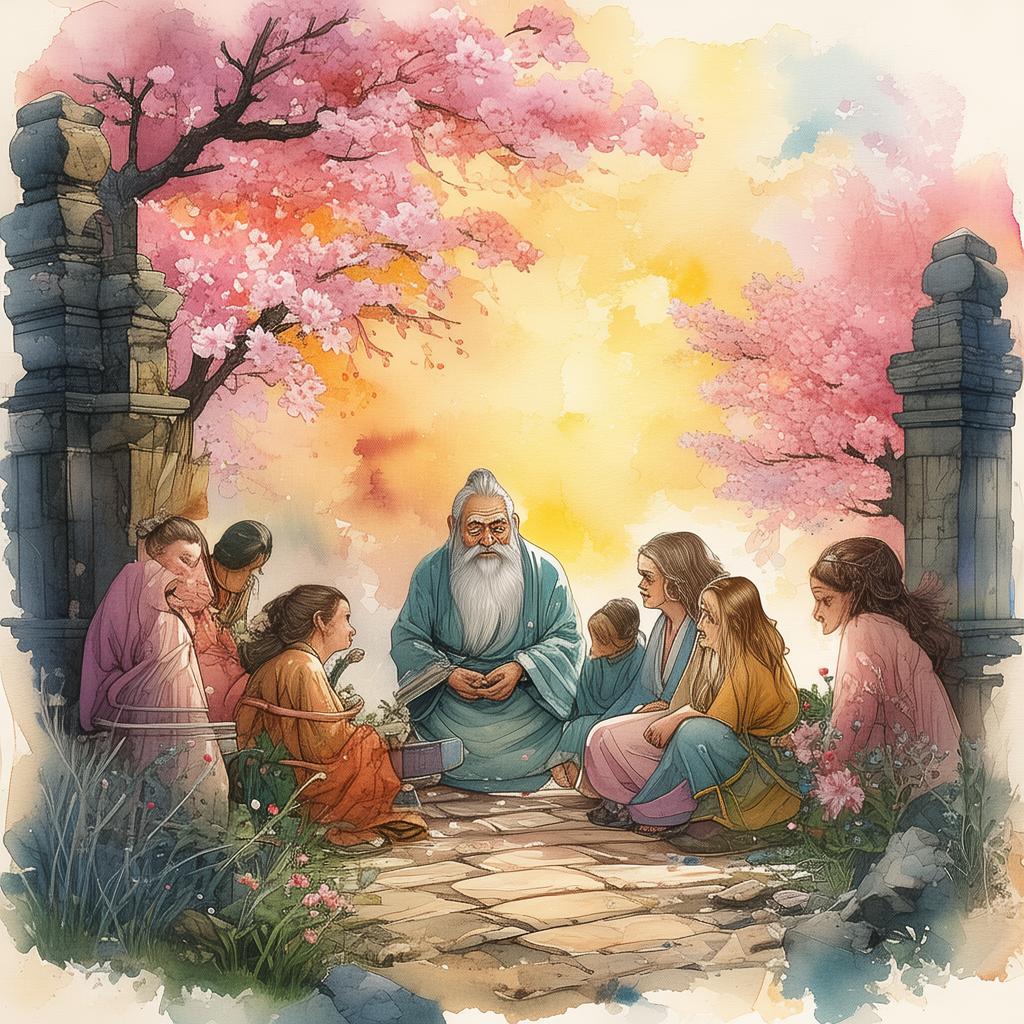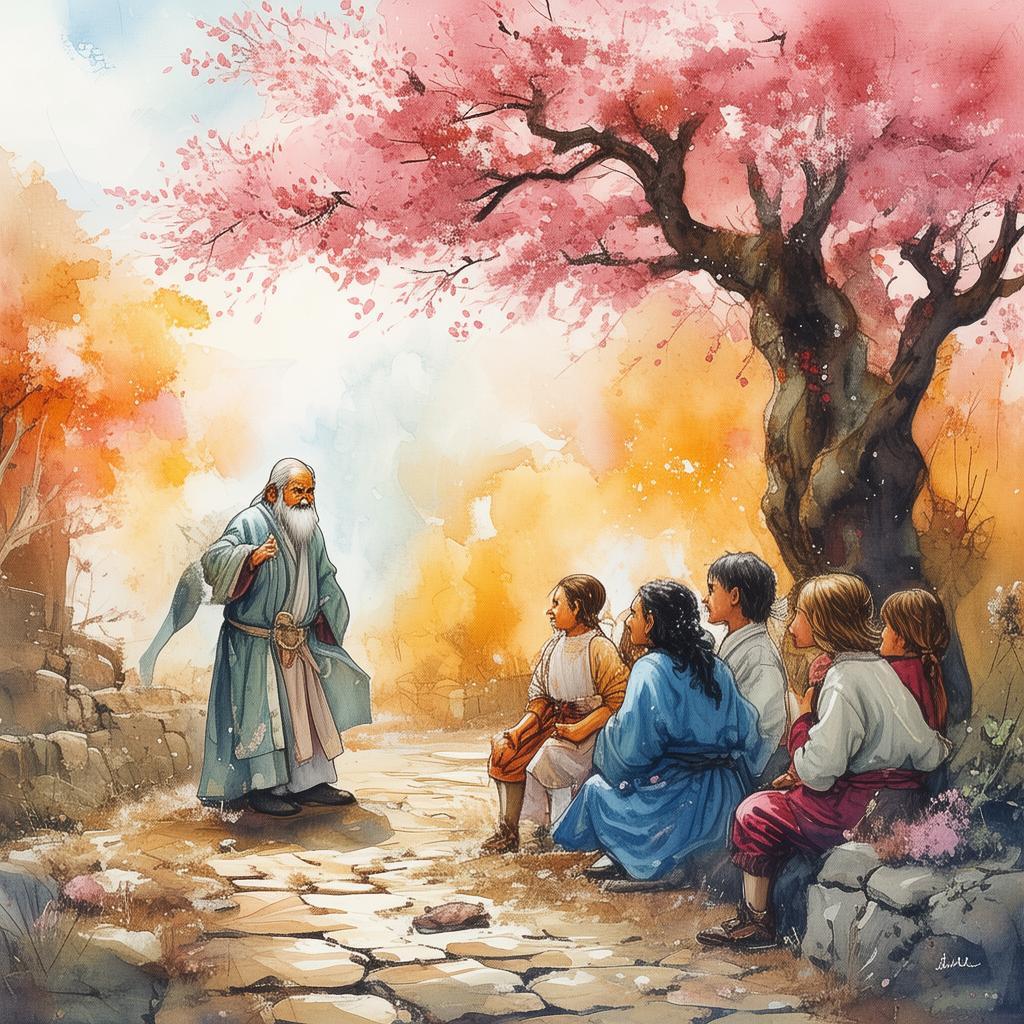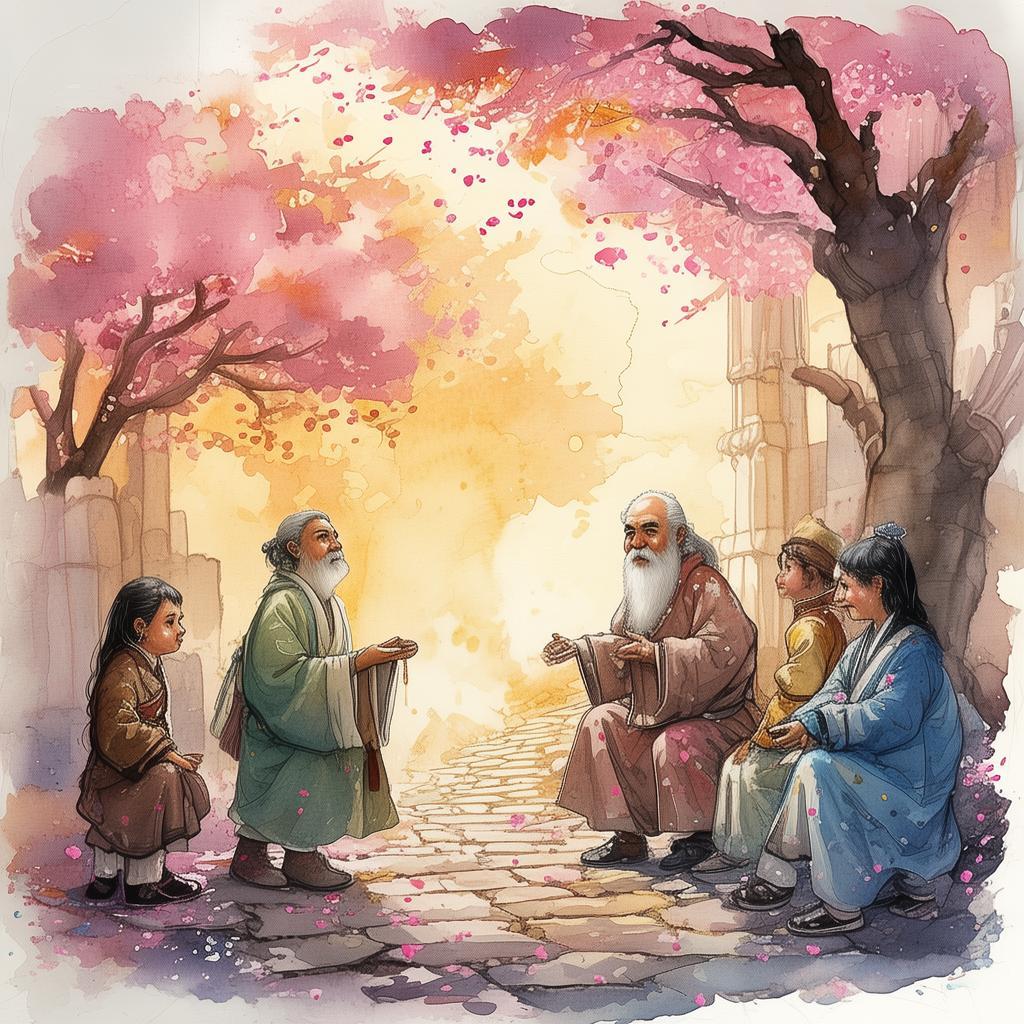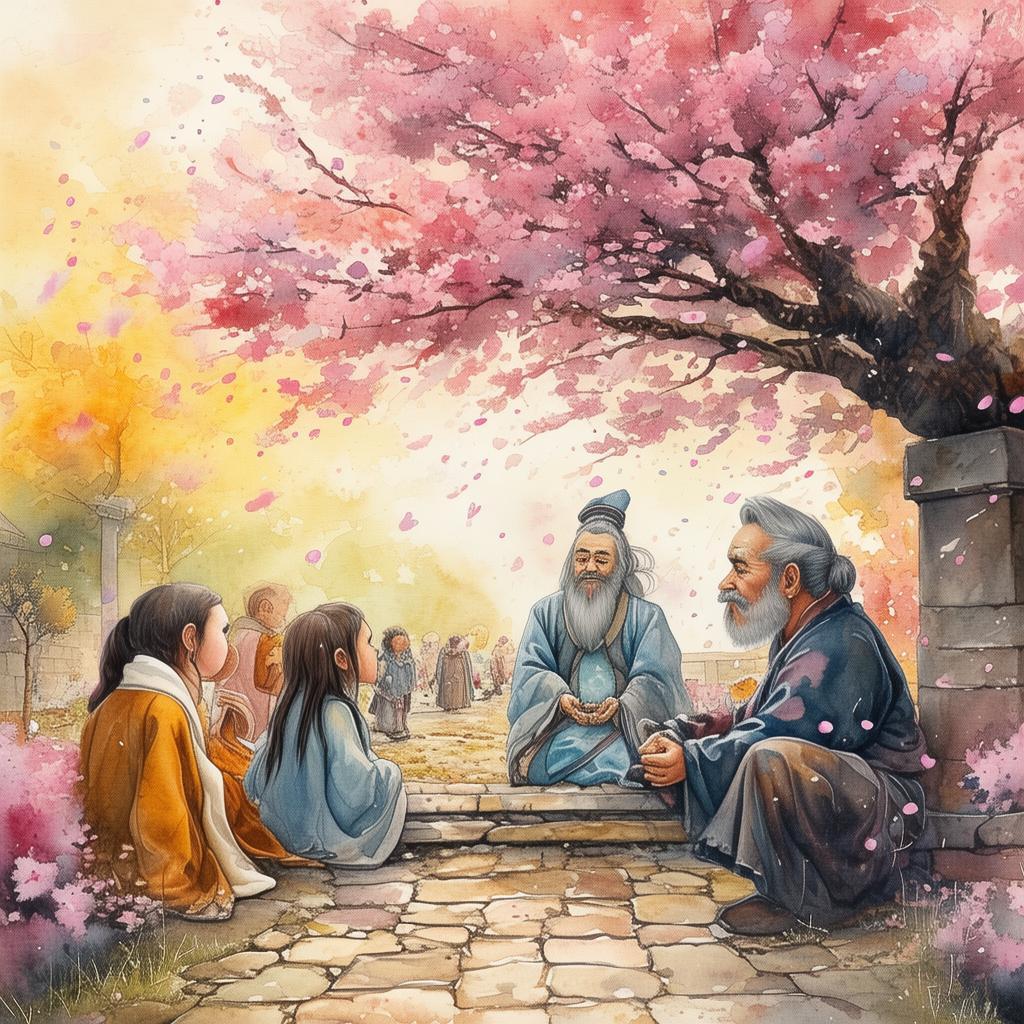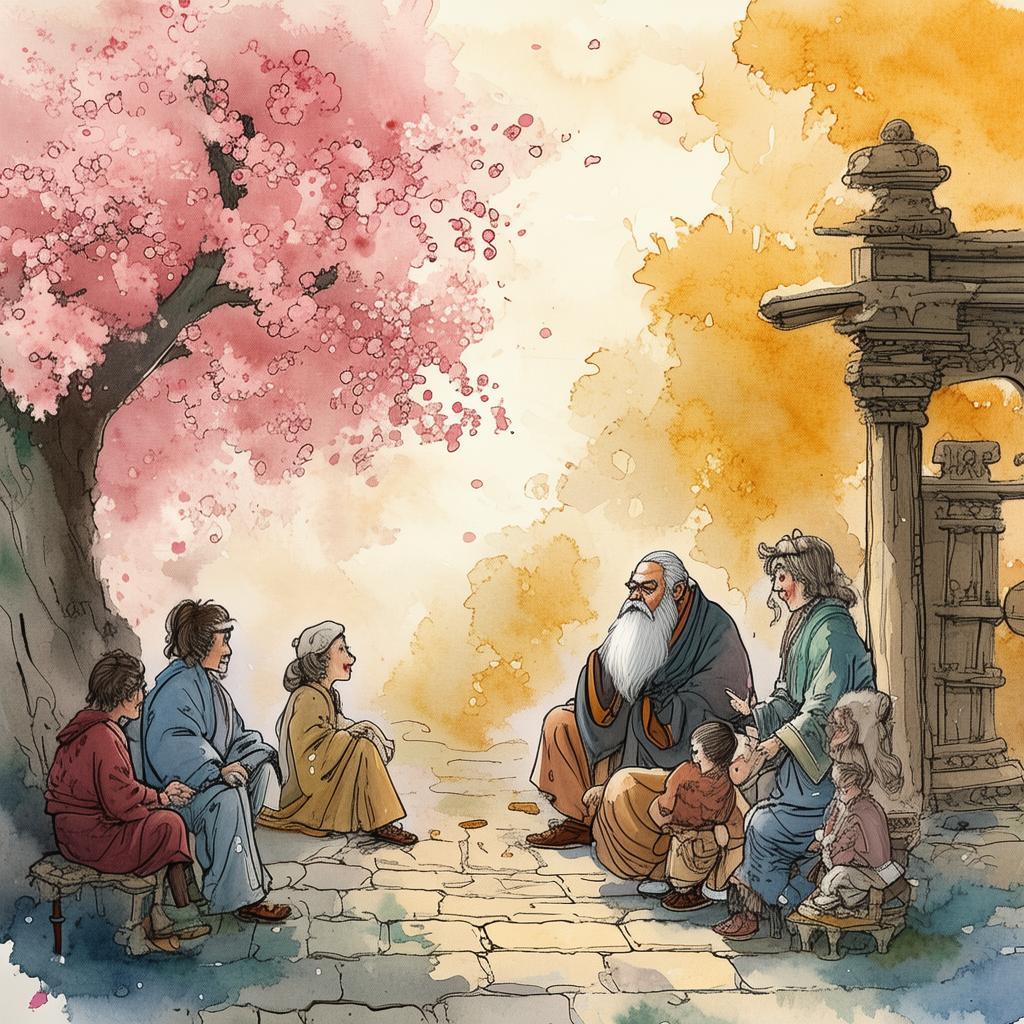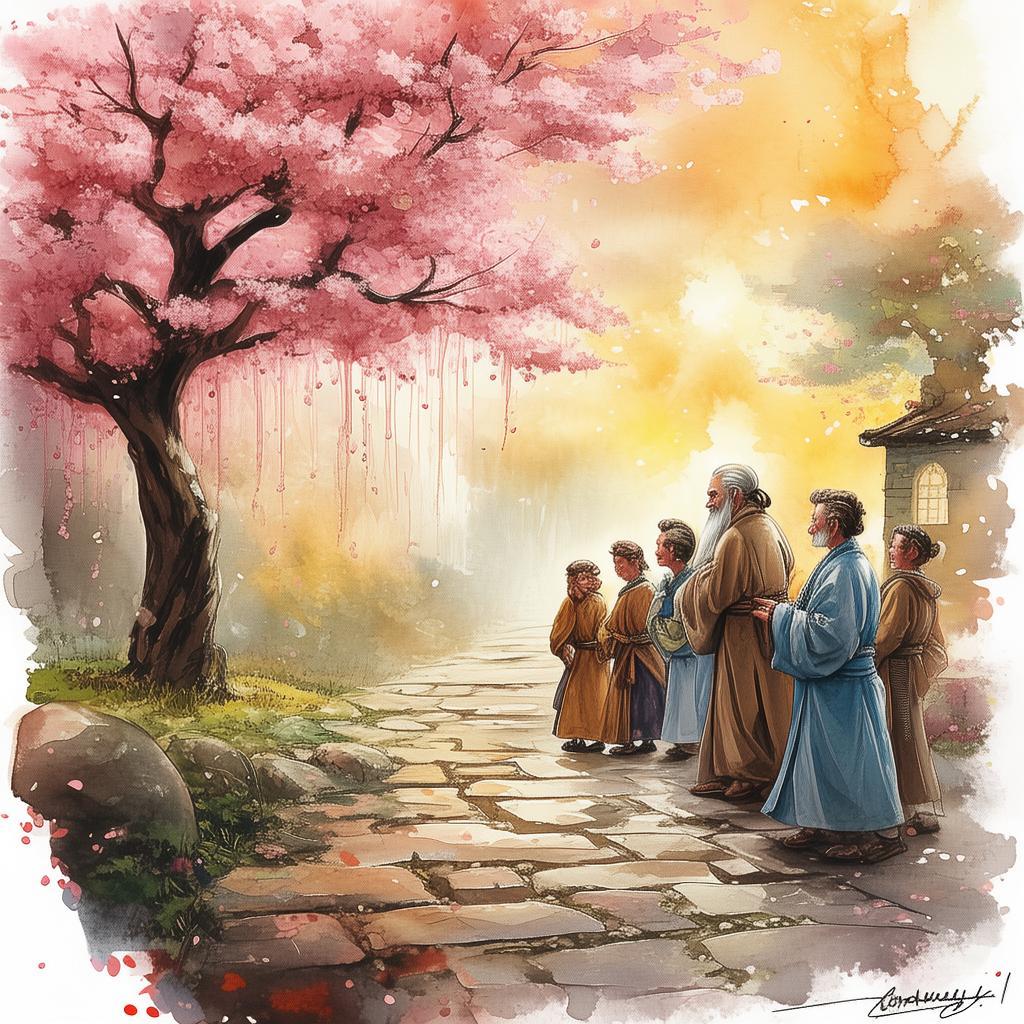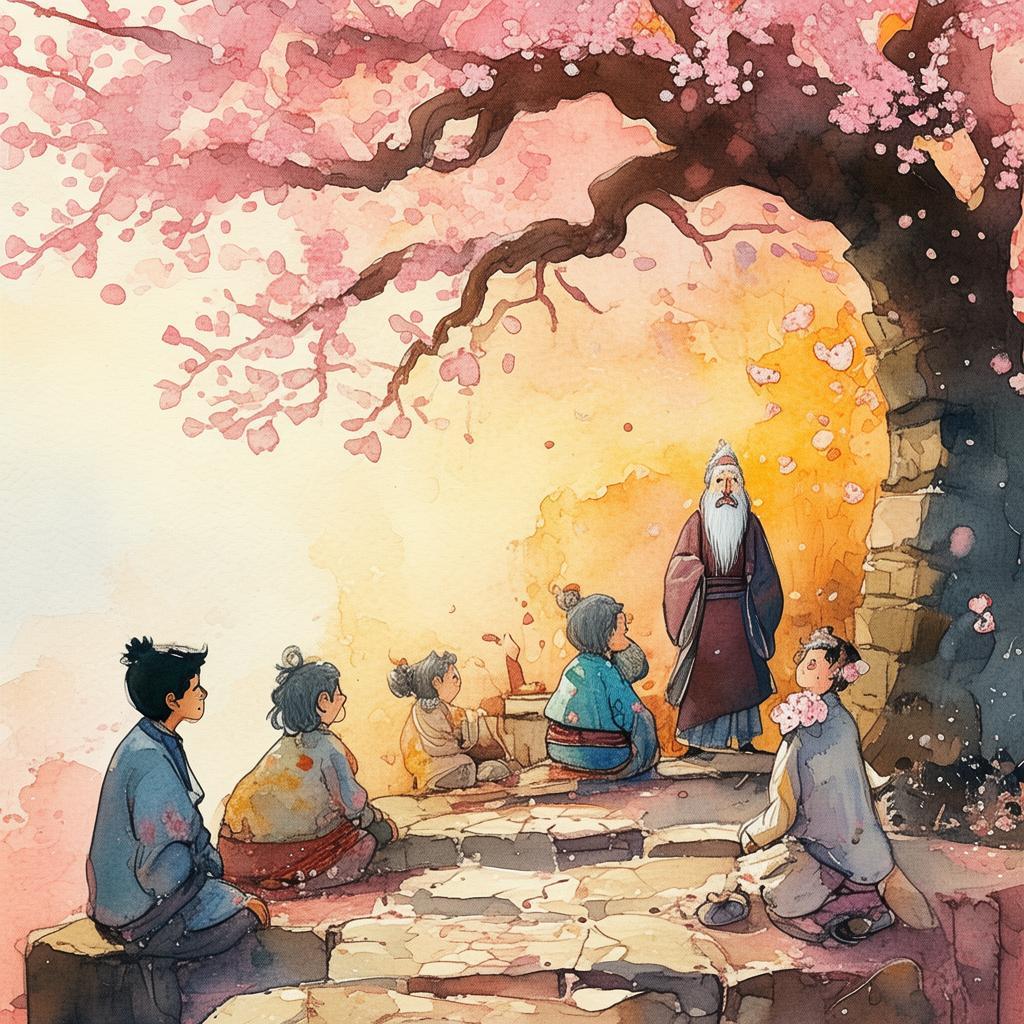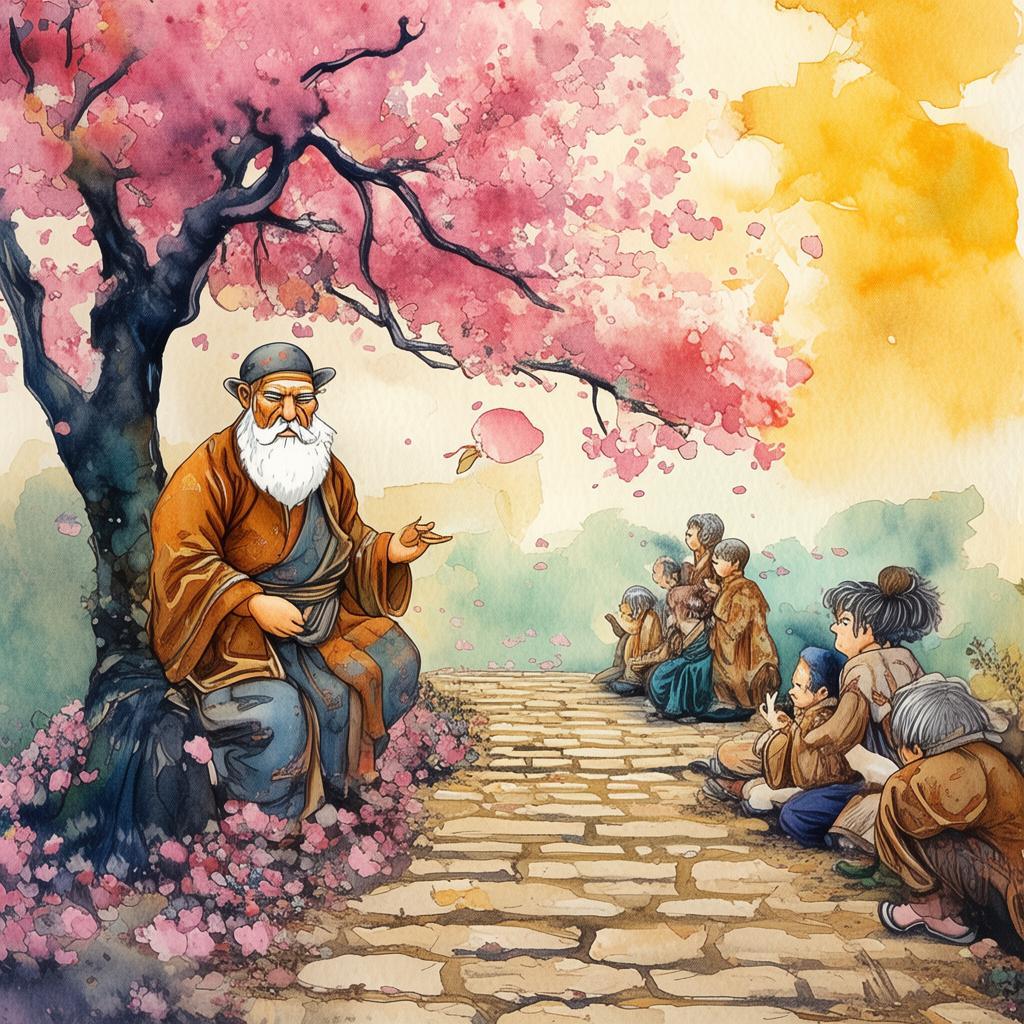Shadow of the Tiger: The Paradox of Imitation
In the lush, untamed wilderness of the ancient mountains, there lived a young man named Feng, whose heart was as fierce as the tigers that roamed freely. He spent his days in the dense forests, observing the majestic creatures with awe. His dream was to be like them, to embody the grace and strength that they possessed.
Feng was a master imitator, able to mimic the movements of the tigers with remarkable precision. His friends and family often marveled at his talent, but little did they know that this imitation was not just a hobby; it was his destiny.
One day, as Feng was out in the forest, he stumbled upon an old, wise tiger named Hua. Hua was not like the other tigers; he was known for his wisdom and his ability to see the future. Feng, in his usual imitative fashion, approached the old tiger with a mixture of fear and reverence.
"Master Hua," Feng began, his voice trembling with excitement, "I have spent my life trying to become like you. Can you teach me the ways of the tiger?"
Hua looked at Feng with a knowing gaze and replied, "You are already a tiger, Feng. Your spirit is that of the tiger. All you need to do is to embrace it."
Feng's eyes lit up with a newfound determination. From that day forward, he lived as the tiger, his every move a perfect mimicry of the great creature. He became the fastest, the strongest, and the most feared of all the tigers in the forest.
As the years passed, Feng's imitation became so perfect that no one could distinguish between him and the real thing. He was known far and wide as the Shadow of the Tiger. But as his reputation grew, so did his sense of isolation. He felt as if he were living a lie, a shadow of the true tiger.
One evening, as Feng lay in the forest, he heard a voice call his name. It was Hua, the old tiger, speaking from the shadows.
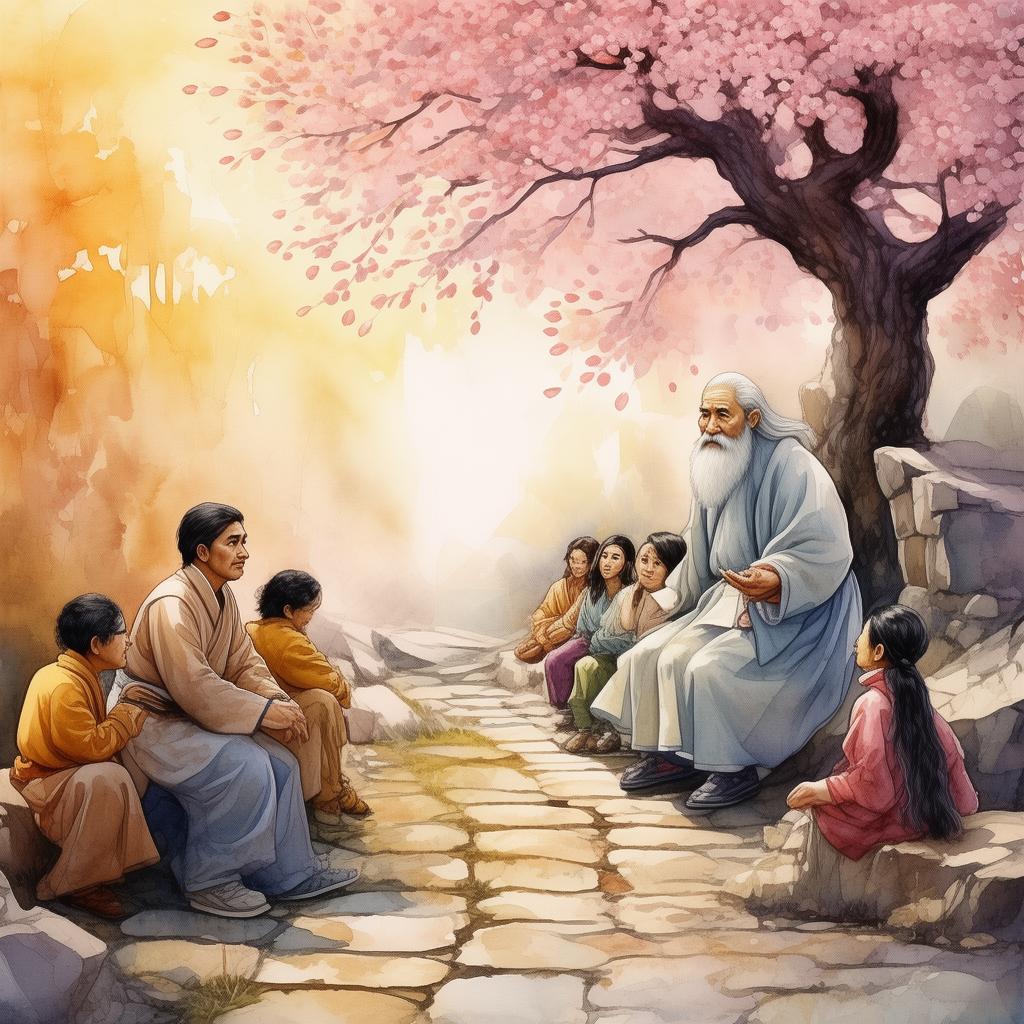
"Feng, your time as the Shadow of the Tiger is over," Hua said. "You must now make a choice. You can continue to live in the shadow, or you can embrace your true self."
Feng was torn. He loved the power and the freedom that came with being the Shadow of the Tiger, but he also longed for authenticity. He thought about his family, his friends, and the life he had built around his identity as the tiger.
In a moment of clarity, Feng realized that he had imitated the tiger, but he had never truly become one. He had missed the essence of the tiger, its wisdom and its connection to the natural world.
With a deep breath, Feng decided to embrace his true self. He stood up and faced the darkness, his heart filled with determination. He no longer wanted to be the Shadow of the Tiger; he wanted to be the true tiger.
The next morning, Feng was found in a different part of the forest, his body covered in scars from his battle with a rival tiger. It was a sign that he was no longer just imitating the strength of the tiger; he was now living it.
As time went on, Feng became a respected figure among the animals. He was known not just for his strength and speed, but for his wisdom and his ability to live in harmony with the natural world.
The tale of Feng, the young man who became the Shadow of the Tiger, became a lesson to all who heard it. It was a story of imitation and the future, of embracing one's true identity and living with purpose.
And so, the story of Feng, the Shadow of the Tiger, lived on, a testament to the power of self-discovery and the courage to break free from the shadows of one's past.
✨ Original Statement ✨
All articles published on this website (including but not limited to text, images, videos, and other content) are original or authorized for reposting and are protected by relevant laws. Without the explicit written permission of this website, no individual or organization may copy, modify, repost, or use the content for commercial purposes.
If you need to quote or cooperate, please contact this site for authorization. We reserve the right to pursue legal responsibility for any unauthorized use.
Hereby declared.
